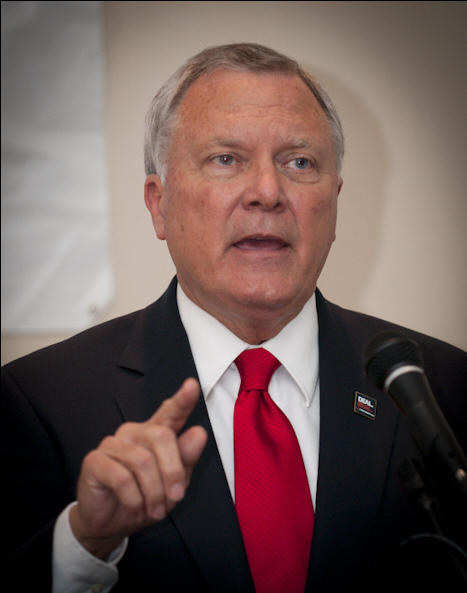
Section Branding
Header Content
Deal Ethics Investigation Won't Be Done Any Time Soon
Primary Content

The whistleblower lawsuit that sparked an investigation into Governor Nathan Deal's 2010 campaign may take years to resolve.
Federal authorities are looking into allegations made by two former employees of the Georgia Government Transparency and Campaign Finance Commission. The pair is currently suing the state under the Georgia Whistleblower Act. They claim the commission forced them out after they tried to look into ethics allegations involving the Deal campaign.
Reports Wednesday revealed that a federal grand jury has subpoenaed a handful people to appear next month, none of whom work in the Governor’s Office.
Georgia whistleblower attorney Brandon Hornsby is not involved in the litigation, but says whistleblower lawsuits involving the government can take up lots of time to prove.
"The law does not make the claim easy. Instead there's a lot of legal hurdles that whistleblowers have to jump through to bring their claims. And especially when you're making one against the government,--those are very hard because the government has all your tax dollars to bring to bear against you when you try to bring a claim against the government."
Hornsby says whistleblower lawsuits take an average of three years, though some can take as long as 10.
Tom Crawford is the editor of the Georgia Report, an online political news service. He says so far this shouldn’t have an impact on Governor Deal’s 2014 campaign.
“Right now, I don’t see where it does because again, the subpoenas have been issued to folks at the ethics commission, not to Governor Deal or to anybody in his office,” said Crawford. “If it gets to the point where the FBI or the U.S. Attorney is issuing subpoenas to people in the Governor’s Office, then at that point, it probably does have an impact or it certainly raises an issue that his opponents could talk about.”
Crawford says there were similar media reports in 2010 that did not impact Deal’s run for governor.
Tags: Nathan Deal, ethics, whistleblower
